Uncategorized
Democrats shift tactics on Trump Cabinet picks after lessons learned from first term
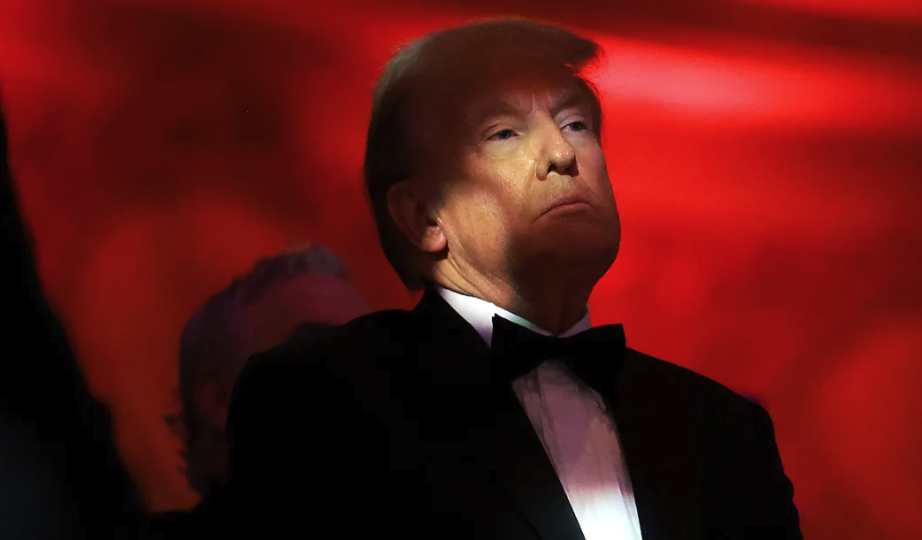
Senate Democrats staged dramatic showdowns to protest nominations during President-elect Donald Trump’s first term in office.
This time around, Democrats are shifting tactics, reluctant to pick endless battles with Trump Cabinet picks that are unlikely to succeed.
It’s a careful tightrope for a party that is still reeling from losing the White House and Senate in the November elections, but one that many Democrats believe reflects the underlying reality of the situation – voters picked Trump despite all of their party’s warnings and attacks against him. And Democrats may need to win over some of those very same voters to find their way out of the political wilderness.
“The mood is slightly different than the last time and there is a sense that if you are freaking out about everything, it becomes really hard for people to sort out what is worth worrying about,” Sen. Brian Schatz, a Democrat from Hawaii, told CNN.
Now, Democrats are looking to implement a deliberate and disciplined strategy in Trump’s second term: pointing out the places where they could work with a nominee when they see fit and forcing Republicans to defend Trump’s picks when a nominee faces ethics questions, has a history of controversial statements or doesn’t have what Democrats view as the necessary qualifications for the job.
“We have to acknowledge something even if we are disappointed that’s true: Trump won. He is the president. We have to accept that,” Sen. Peter Welch, a Democrat from Vermont, said. “We are going to approach this in a very straightforward way. President Trump won. He has a right to nominate his Cabinet members. Our approach will be to give him the benefit of the doubt but not a blank check.”
Some Democrats have already been clear they may be open to voting for some of Trump’s picks even if they’ve sparred with them before. Democratic Sen. John Fetterman of Pennsylvania told CNN earlier this month he would “absolutely” vote to confirm his one-time political rival Dr. Mehmet Oz to lead a key health care agency as long as Oz “agrees to protect and preserve Medicaid and Medicare,” offering up praise for his qualifications as a doctor and even saying he would “have a beer with the dude.” And several Democrats said they are looking forward to backing their colleague Sen. Marco Rubio of Florida to be the next secretary of state.
During Trump’s first term in office, Democrats, in some instances, used procedural or tactical hurdles to delay votes in committee, something which can backfire quickly.
Democrats won’t back away from made-for-TV moments during public confirmation hearings as they look to drive a wedge between Republicans on issues or past statements that nominees have made. But several Democrats CNN spoke to said they are also reticent to needlessly delay confirmations or “play games,” knowing that doing so could risk a GOP backlash and could embolden Trump to use what are known as recess appointments, essentially bypassing Congress altogether.
Democrats stress that a measured approach shouldn’t be mistaken for Democratic support for Trump’s most controversial picks. In the course of conversations with more than a dozen Democrats, members and aides said it’s clear that some of Trump’s most contentious picks from Pete Hegseth to lead the Department of Defense to his Director of National Intelligence selection, Tulsi Gabbard, are unlikely to win over many of their members. But Democrats believe their only real strategy to move the needle on these canbdidates is to give their GOP colleagues space to make the decisions about their futures on their own and not engage in partisan battles just for the sake of the exercise.
Democrats are also acutely aware that they will be in the minority and Republicans have a comfortable three-seat margin.
“Sometimes all you can do is create a record that shows people ‘Ok, this is what you are getting,’” Sen. Tim Kaine, a Democrat from Virginia, told CNN.
The Senate Democratic caucus is diverse and represents an ideological spectrum. As a result, there will won’t necessarily be one singular unified strategy. Some members may pursue divergent approaches or differ in their opinions. But based on interviews with multiple members and aides it’s clear that many in the party believe a new approach is needed after Democrats lost to Trump a second time.
During the first Trump administration, Democrats staged a surprise boycott of the Senate Finance Committee to deny Republicans a quorum to vote to advance the nominations of Secretary of Health and Human Services Tom Price and Treasury Secretary Steve Mnuchin as Democrats argued they needed additional information about the nominees’ finances and business practices. Democrats similarly used procedural hurdles in the Senate Judiciary Committee to force Republicans to reconvene one day later to vote on Jeff Sessions to be the attorney general.
At the time, Senate GOP Leader Mitch McConnell blasted Democrats for the moves, saying, “It is time to get over the fact that they lost the election..none of this is going to lead to a different outcome.”
“I can’t predict what tactics may be adopted. I personally would be inclined to show up for committee meetings, not the private committee of a forum. That’s just my personal inclination,” Democratic Sen. Richard Blumenthal said.
For committees, a key question emerges with Trump shifting norms
Democrats are also clear they won’t cease reminding voters of the ways Trump and his incoming administration are defying precedent if they decline to have nominees undergo FBI background checks. On Monday, Senate Majority Leader Chuck Schumer penned a letter to incoming GOP leader Sen. John Thune insisting that Thune maintain the process of confirming nominees, including FBI background checks.
Schumer wrote that the Senate should work “in a bipartisan fashion to process each nominee by reviewing standard FBI background-investigation materials, scheduling hearings and markups in the committees of jurisdiction, and considering nominees on the Senate floor.”
Democrats are grappling with how much they need to do behind the scenes if Trump’s transition team follows through with their suggestion they won’t have nominees go through the normal FBI vetting process.
“It is not like we can substitute the work of the FBI,” one Democratic source told CNN on background to discuss internal deliberations.
While each committee has slight variations in how it is briefed on the background reports or uses their contents, members have largely argued that more information – not less – is essential in backstopping their decision of whether to support a nominee. Democrats warn that with some of Trump’s picks having never worked before in government, the checks are even more essential, especially as questions have been raised about the past behavior of some, including Hegseth, who was accused in 2017 of sexual assault. Police did not press charges and Hegseth has denied the incident was an assault.
Others suggested the question of whether Democrats engage in their own vetting is still very much up for discussion.
“There have to be investigations so whether it’s the FBI or our committee staff, there have to be,” Kaine said while acknowledging “It can be challenging” especially as Democrats are seated to lose power over those committees in a matter of weeks.
Democrats will remain in the majority until January, but unlike the FBI, which is well versed in conducting the nominee background checks, committees would have to stand up a plan for an investigation and execute it in short order.
“We shouldn’t do that. We should get the FBI background check,” Welch said.
In the end, Democrats say they are going to stay flexible, recognizing some of the strategy is going to be born of organic and unforeseen circumstances in the months ahead.
“I don’t think there is an overall answer. (Trump’s) labor nominee is for example very different than his nominee for the Department of Defense and the approaches should be tailored to the individual nominees,” Massachusetts Sen. Elizabeth Warren said. “Democrats are here to carry out our Constitutional duties to advise and consent. To do that, we need our FBI background checks, an opportunity to meet with the candidates and then to ask them questions in open hearings.”
Uncategorized
Just in! Biden White House considering preemptive pardons for Trump’s perceived enemies
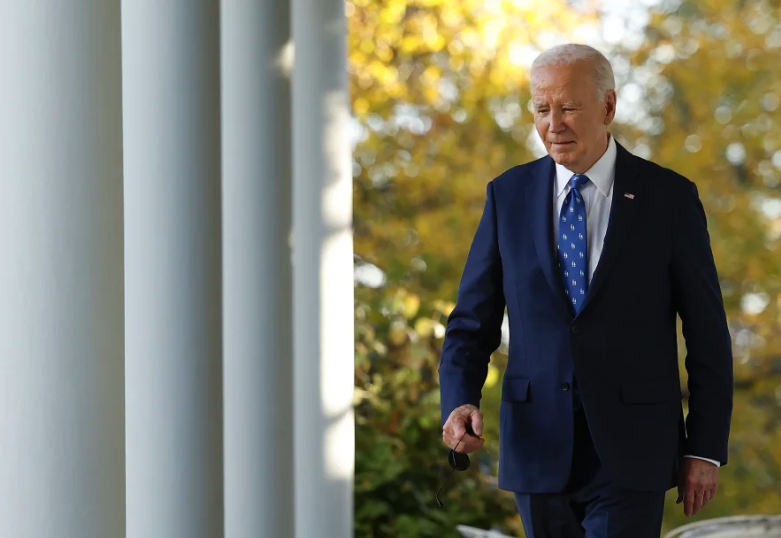
Senior Biden White House aides, administration officials and prominent defense attorneys in Washington, DC, are discussing potential preemptive pardons or legal aid for people who might be targeted for prosecution by President-elect Donald Trump after he retakes power, multiple sources told CNN.
Reports of these conversations have captured the attention of Trump’s legal advisers, who, according to a source familiar with their strategy, believe President Joe Biden would be setting a new precedent in terms of the scope of pardons that they could take advantage of, down the line, to help their own allies.
Biden’s senior aides inside the White House have been deliberating for weeks about the possibility of issuing preemptive pardons, according to the sources familiar with the discussions. The move, which would cover people who haven’t ever been formally accused of any crimes, would be an extraordinary step and shows the grave concerns many Democrats have that Trump will prosecute a range of figures that he considers to be his enemies.
Trump has publicly called for the jailing of people like Republican former Rep. Liz Cheney, who served as vice chair of the House select committee that investigated the January 6, 2021, US Capitol attack, as well as special counsel Jack Smith, who brought federal criminal cases against Trump.
One former senior White House official said aides inside the White House and across various federal agencies are intensely worried about the possibility that the incoming Trump administration will prosecute anyone deemed as having antagonized the president-elect.
Additionally, several prominent white-collar lawyers across Washington have fielded calls in recent weeks from government officials, including investigators from Smith’s office, who are concerned they could be targeted by the incoming Trump administration.
Biden and his top aides view Trump’s public threats – particularly against current and former government officials – as unprecedented, and some believe that it would be reckless and irresponsible for Biden to leave office without granting preemptive pardons.
“You have got (an incoming) president that has basically said he’s going to go after all these people,” a source familiar with the discussions told CNN. “Why not do it?”
A White House spokesperson declined to comment.
Possible legal defense funds
According to Politico, which first reported on the internal debate, the discussions are being led by White House counsel Ed Siskel and other senior aides to the president, including chief of staff Jeff Zients.
The former White House official who spoke to CNN, who is intimately familiar with the workings of the White House counsel’s office, said it would be typical for Siskel and his team to first put together a detailed memo to be presented to Biden.
In that situation, that memo would include a list of individuals that Biden might consider pardoning preemptively, the context about any prior legal precedent, and a discussion of the wide range of potential ramifications if the president does move forward with these pardons.
The calls among worried government officials and top white-collar defense lawyers in DC, appear, at this point, to be precautionary. One private attorney told CNN that they’re “feeling out what they should do if something happens” once Trump takes over.
A spokesman for Smith’s special counsel office declined to comment on whether he would seek a preemptive pardon. CNN previously reported that Smith intends to step down before Trump takes office, instead of being fired, as the president-elect has pledged to do.
As Democrats brace for the political and legal scrutiny that could come from the new president, his administration, and the GOP-run Congress, one significant concern for many current and former administration officials is the possibility of mounting legal bills.
Multiple sources said there have been discussions about setting up legal funds to help support those who would not be able to afford thousands of dollars in lawyers’ fees.
Some of the private practice bar have discussed if influential white-collar practices could work together to help career Justice Department workers – and others who are exiting the federal workforce – to possibly provide them low-cost or pro-bono representation.
And at least one progressive group is working on assembling resources – such as lawyers, security experts and communications professionals – who could help government officials placed under investigation during the Trump years, some of the people familiar with the discussions said.
Emboldening Trump?
A source familiar with Trump legal strategy says his team believes Biden’s pardon of his son Hunter has set a new precedent for presidents to issue expansive pardons to their children – and this could be something Trump chooses to do before he leaves office.
The Hunter Biden pardon was notable for not only forgiving the crimes in his tax and gun indictments, but also for protecting him from being charged with any offense he “may have committed or taken part in” between January 2014 and December 2024.
There’s also the president’s brother James Biden, who hasn’t faced charges but whose overseas business dealings attracted intense scrutiny from congressional Republicans. Several GOP-run House committees urged the Justice Department to prosecute James Biden in connection with lying to Congress. (He denies all wrongdoing and declined to comment for this story.)
If Biden goes even further and grants preemptive pardons to an expansive list of individuals, Trump’s team believes that move would also create a new precedent and give Trump political cover to do the same for his allies, according to the source.
CNN reported in 2021 that before Trump left office during his first term, he considered – but did not grant – preemptive pardons for family members, political allies, his personal attorneys, and even for himself, including in the wake of the January 6 insurrection.
Attorneys across the political spectrum have raised concerns about blanket pardons to protect against future investigations or prosecution.
“It’s just such a different use of the pardon power,” said Neil Eggleston, former White House counsel to President Barack Obama. “You would create the beginning of a tit for tat where, when any administration is over, you just pardon everybody.”
Presidential pardons protect against federal Justice Department prosecutions, but do not shield individuals from state-level criminal cases or congressional investigations.
While Trump has publicly said he wants his Justice Department to go after his perceived adversaries, the system has built-in checks against abuses of power, such as judges that can throw out charges, grand juries that can refuse to indict, juries that can return “not guilty” verdicts, and other safeguards to protect against purely vindictive prosecutions.
Some prominent former Justice Department officials have said they wouldn’t want a preemptive pardon from Biden, because it might imply they’re conceding there was wrongdoing during their work for the federal government, according to a source familiar with their thinking.
Trump’s ever-growing enemies list
Trump has a well-documented history of pushing – both publicly and privately – for investigations and prosecutions of his political opponents, almost always based on unproven, baseless and conspiracy-tinged allegations about their supposed activities.
Many of his recent threats targeted prosecutors who charged him with crimes: Smith, Manhattan District Attorney Alvin Bragg and Fulton County District Attorney Fani Willis.
He has publicly called for investigations into prominent lawmakers: Cheney and the rest of the January 6 committee members (who he said “should go to jail”), former House Speaker Nancy Pelosi (for her supposed “ties to Russia”), Senator-elect Adam Schiff (for his role in the Trump-Ukraine impeachment saga) and a host of other Democratic lawmakers.
Still, members of Congress have immunity from the Constitution’s “speech or debate clause” that offers such broad protections for their legislative work that even members of the defunct January 6 committee would be unlikely to take seriously any legal threats.
Trump also has said Vice President Kamala Harris “should be … prosecuted” for letting undocumented immigrants into the country. After the election, Trump called for probes of Iowa pollster Ann Selzer (for “election fraud,” by releasing a poll with Harris ahead), and into stock traders who spread “illegal rumors” about his investment in Truth Social.
During his first term, some of Trump’s calls for probes were apparently heeded, leading to investigations into 2016 Democratic nominee Hillary Clinton, former FBI director James Comey, and former FBI deputy director Andy McCabe, now a CNN contributor.
None of them were ever charged with crimes.
Some of Trump’s longtime foes who worked on the Russia probe around the 2016 election may not have much legal exposure now because their government service ended so long ago and statutes of limitations may have lapsed.
There are plenty of other figures that, despite Trump’s calls, weren’t investigated during his first term, but could be scrutinized when he returns to power: former President Barack Obama (for “treason”), former Secretary of State John Kerry (for his contacts with Iran), and even MSNBC host Joe Scarborough (based on a conspiracy theory that he was possibly able to “get away with murder” after one of his interns died in 2001).
Attorneys who might defend top targets have their own fears, too. Representing Trump administration and political officials had largely gone out of fashion for large DC defense firms in recent years, with few willing to take on clients, especially after January 6.
The view at Washington’s elite firms – which tend to lean liberal – may be shifting back toward getting involved, but it’s still not clear how much pushback the next Trump presidency may receive from the capital’s powerful law firms, several prominent attorneys told CNN this week.
“There could well be a fear now by law firm leaders that if we take on those cases, could we ourselves be targeted?”one white-collar lawyer who regularly represents high-profile political figures told CNN on Thursday.
Focus on political pardons angers activists
Some liberal-leaning and criminal justice reform groups are pushing Biden to focus his final clemency efforts less on family members, political allies or Trump’s potential targets – and instead to help incarcerated Americans whom they believe deserve relief.
One group, FWD.us, is airing TV ads in the Washington, DC, market, pressing Biden to “give people a second chance,” by granting clemency to Americans with “outdated” prison sentences that they argue would be shorter under today’s laws and policies.
They’ve pointed to Obama’s record-setting commutations as a model. He reduced the punishments of more than 1,300 convicts, including 500 people serving life sentences.
“The thousands of people serving disproportionately long and racially disparate sentences in federal prison have been waiting for relief long before the politics of this particular moment,” Zoë Towns, executive director of FWD.us, said in an email. “It is our hope that whatever comes next includes a robust clemency effort focused on them.”
Uncategorized
Suspect Handled His Gun Like an Expert

UnitedHealthcare CEO MurderSuspect Handled His Gun Like an Expert… Says Former FBI Agent
The suspect who killed UnitedHealthcare CEO Brian Thompson handled his gun proficiently during Wednesday’s shooting — something that’s painfully clear, according to a former FBI agent.
Jennifer Coffindaffer spoke with us on “TMZ Live” Friday and broke down the suspect’s expertise — pointing out how he used a silencer on the gun, fully aware it could cause jams, and cleared it like a pro without missing a beat when it did.

Watch the video … Coffindaffer digs into the suspect’s firearm skills and breaks down what the 3 distinct shots reveal about the man behind the trigger.
She also unpacks his days-long stay at a NYC hostel before the murder, pointing out how odd it was that he didn’t spring for the privacy of a hotel room. Then there’s the pre-murder Starbucks stop — another bizarre move she says hints at his detached state of mind.

Jennifer suspects the assassin has likely skipped town, but when it comes to whether the cops will catch him, she’s crystal clear on her take.
Article credits TMZ
Uncategorized
100 National Security Officials Sign Letter Demanding Closed Door Hearings on Tulsi Gabbard
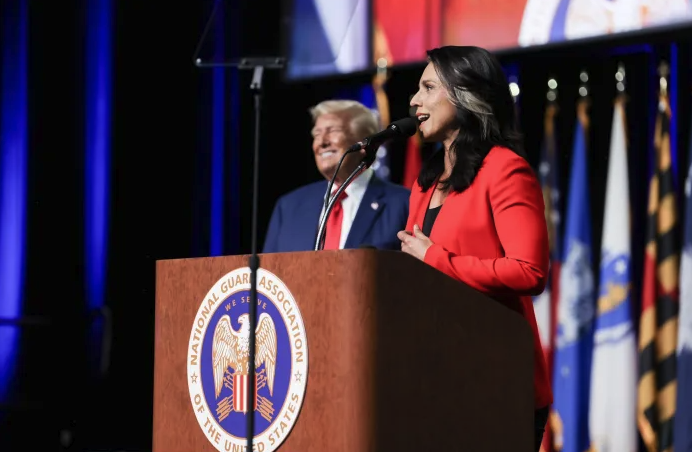
Gabbard has a history of praising dictators and trashing the U.S. intelligence community
Donald Trump’s nomination of Tulsi Gabbard to lead the U.S. intelligence community has caused alarm, with nearly 100 national security officials penning an open letter to Senators John Thune and Chuck Schumer asking for closed door hearings for senators to receive briefings on Trump’s controversial pick.
If appointed to the office of Director of National Intelligence, Gabbard would oversee 18 agencies, including the CIA, FBI, and NSA, and would have tremendous influence interpreting and relaying the highest level of classified material to the president.
The letter urges Thune and Schumer, the new Senate Majority and Minority Leaders respectively, to allow senators to review “all information available to the U.S. government” on Gabbard prior to holding her confirmation vote. The letter cites Gabbard’s “sympathy for dictators like Vladimir Putin and Assad” and raises questions about her “judgement and fitness.”
“Several of Ms. Gabbard’s past actions call into question her ability to deliver unbiased intelligence briefings to the President, Congress, and to the entire national security apparatus,” the letter reads. “Following her trip to Syria, for example, Ms. Gabbard aligned herself with Russian and Syrian officials.”
“She publicly cast doubt on U.S. intelligence reports and overwhelming public reporting that Assad carried out chemical weapons attacks against civilians, giving credence to a debunked conspiracy theory that the attack was staged by agents of the United Kingdom.” Gabbard once said that the Syrian dictator was “not the enemy.”
“As Director of National Intelligence, Ms. Gabbard would be entrusted with…the identification and protection of human sources working in the most dangerous settings around the world to defend our national security, and the protection of our most sensitive sources and methods of gathering intelligence.”
The letter concludes by asking the senate to hold closed door hearings to make all information on Gabbard available to senators so they may fully and properly engage in their advise and consent function of approving presidential nominees to key positions in the government.
It is signed by nearly 100 former ambassadors, retired high ranking members of the military, and state department officials.
-
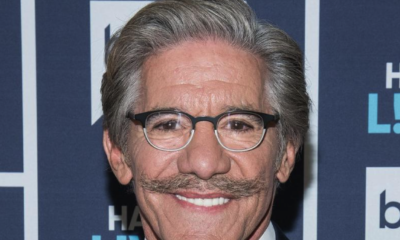
 News11 months ago
News11 months agoGeraldo Rivera Slaps Trump Supporters With A Reality Check After Biden’s Pardon
-
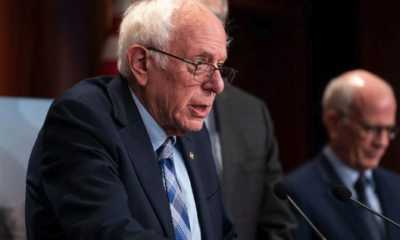
 News11 months ago
News11 months agoBernie Sanders Flips The Script And Praises Trump Picks
-

 Uncategorized11 months ago
Uncategorized11 months agoNaked RFK Jr. Makes Cameo On Wife Cheryl Hines’ Social Media
-

 News11 months ago
News11 months agoPhoto of person of interest with the mask down was the “money shot,” police commissioner says
-
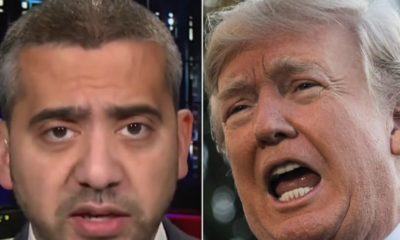
 News11 months ago
News11 months ago‘Banana Republic Stuff’: Mehdi Hasan Nails GOP Hypocrisy Over Trump’s Latest Move
-
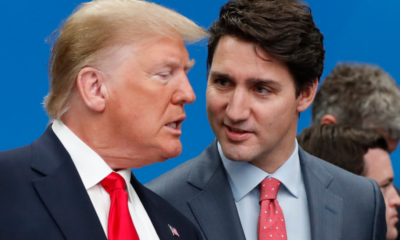
 News11 months ago
News11 months agoBREAKING: Canada just stunned Trump with brutal news after holding an “emergency meeting.” This WON’T end well for Trump…
-
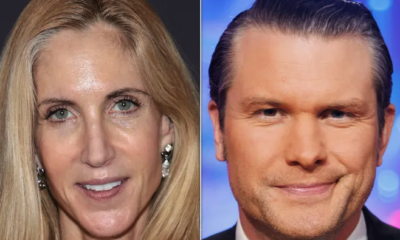
 News11 months ago
News11 months agoAnn Coulter Slams Controversial Trump Cabinet Nominee As ‘Sleazy’ Serial Adulterer
-
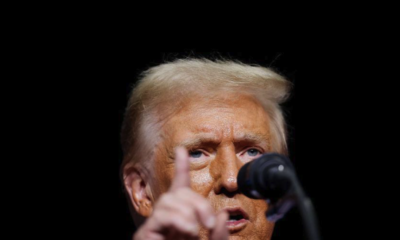
 News11 months ago
News11 months agoTrump Is Using “Unitary Executive” Theory in His Bid to Amass Supreme Power






